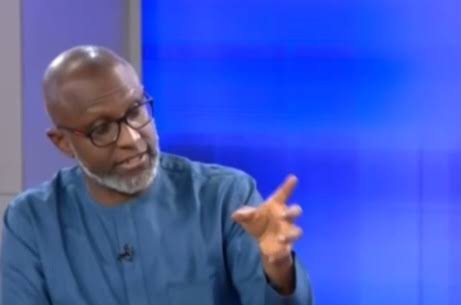What Senate, Ndume Got Wrong Over His Removal By Former Presidential Aide Laolu Akande
Former Presidential Spokesperson Laolu Akande has weighed in on the Senate’s decision to dismiss Senator Ali Ndume as Chief Whip during an interview on Channels TV’s Sunrise Daily, calling into question the transparency and party democracy of Nigeria’s legislative process. Akande, the host of #InsideSources, addressed the issue of whether President Bola Tinubu was aware […]

akande
Former Presidential Spokesperson Laolu Akande has weighed in on the Senate’s decision to dismiss Senator Ali Ndume as Chief Whip during an interview on Channels TV’s Sunrise Daily, calling into question the transparency and party democracy of Nigeria’s legislative process.
Akande, the host of #InsideSources, addressed the issue of whether President Bola Tinubu was aware of Ndume’s removal, stating, “Your guess is as good as mine.”
He highlighted the lack of open party democracy in Nigeria, emphasizing the need for constructive criticism and transparency in political affairs. “Senator Ali Ndume, what happened to your party? How come these issues were not properly discussed and publicized?” Akande questioned, criticizing the absence of robust debate within the ruling party’s caucus.
He condemned the Senate’s handling of Ndume’s removal, particularly the reading of a letter from the party chairman on the Senate floor, which he deemed unnecessary and theatrical. Akande pointed out the passive response from opposition party members during the proceedings, calling for a focus on national interests rather than partisan squabbles.
Regarding the process of leadership selection in the National Assembly, Akande suggested that such decisions should be handled discreetly within party caucuses, rather than through public displays that undermine legislative integrity. “It is baffling that senators sit idly by while such actions occur,” Akande remarked, urging elected officials to prioritize public interests over personal gains. He criticized the lack of advocacy on critical issues such as minimum wage, suggesting a disconnect between legislative responsibilities and personal agendas.
Furthermore, Akande underscored the broader implications of such legislative maneuvers, noting that they erode public trust in the democratic process. He argued that the lack of transparency and internal democracy within political parties often translates to poor governance and a lack of accountability. “When party decisions are shrouded in secrecy and personal interests overshadow the public good, it is the citizens who suffer,” Akande asserted.
He called for a reevaluation of the political culture in Nigeria, advocating for greater openness and a commitment to democratic principles within all political parties. Akande emphasized that true democracy requires active participation, debate, and a willingness to challenge the status quo for the betterment of society. “Our democracy can only thrive when we hold our leaders accountable and demand transparency at every level,” he concluded.
